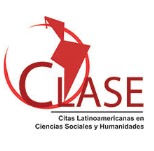“Caminhando lado a lado:” práticas colaborativas nos tratamentos de saúde mental e uso de substâncias
DOI:
https://doi.org/10.38034/nps.v27i61.409Palavras-chave:
saúde mental comunitária, práticas colaborativas, comorbidades de problemas de saúde mental e uso de substâncias, superação, tomada de decisão compartilhada, pesquisa-ação, investigação cooperativaResumo
Apesar da importância das práticas colaborativas na pesquisa e na teoria estar bem consolidada entre os profissionais da saúde mental, pouca atenção tem sido dada ao que significa realmente entrar e se engajar numa relação colaborativa. O objetivo deste estudo foi identificar os principais elementos e maneiras pelas quais os profissionais da saúde mental podem colaborar, na prática, com os usuários do serviço e suas famílias. Foi feito um estudo qualitativo, na modalidade pesquisa-ação, utilizando a abordagem da investigação cooperativa incluindo discussões em grupo focal multietapas com terapeutas, médicos, assistentes sociais e demais profissionais da área, especializados em atenção e cuidado em saúde mental e uso problemático de substâncias. Utilizamos análise de conteúdo temática com o propósito de identificar características comuns. A partir da análise de conteúdo identificamos três grandes temas relacionados às experiências dos profissionais de práticas colaborativas: (a) caminhar lado a lado através de diálogos negociados, (b) manter relacionamentos humanos e (c) manejar relações e serviços. Concluímos que mesmo com a sólida e rica base de conhecimento que se desenvolveu a partir das relações e práticas colaborativas, é ainda um desafio para os profissionais reorientar a sua prática adequadamente. Nossas descobertas parecem indicar que os profissionais se concentram em dois tipos de processos que caracterizam a prática colaborativa: um que foca nas conversas entre os profissionais e usuários dos serviços e suas famílias e outro com foco na gestão e controle entre os prestadores de serviços de saúde, setores de serviços e usuários de serviços (ou seja, uma colaboração inter/intra).
Downloads
Referências
Anderson, H. (2012). Collaborative practice: a way of being “with”. Psychother Polit Int, 10(2), 130-145.
Behrman, A. E. (2005). First person recovery. J Dual Diagn, 14, 4-9.
Beresford, P. & Carr, S. (2012). Social Care, Service Users and User Involvement. London: Jessica Kingsley Publishers.
Bordin, E. S. (1979). The generalizability of the psychoanalytic concept of the working alliance. Psychotherapy: Theory, Research & Practice, 16(3), 252-260.
Borg, M. & Davidson, L. (2008). The nature of recovery as lived in everyday experience. J Ment Health 2008, 17(2), 129-140.
Borg, M., Karlsson, B., & Stenhammer, A. (2013). Recoveryorienterte Praksiser: En Systematisk Kunnskapssammenstilling [Recovery Oriented Practice: A Systematic Review]. Oslo, Norway: Nasjonalt kompetansesenter for psykisk helsearbeid (NAPHA).
Borg, M. & Kristiansen, K. (2004). Recovery-oriented professionals: helping relationships in mental health services. J Ment Health, 13(5), 493-505.
Borg, M., Karlsson, B., Kim, H. S., & McCormack, B. (2012). Opening up for many voices in knowledge construction. Forum: Qual Soc Res, 13(1). In http://www.qualitative-research.net/index.php/fqs/article/view/1793
Borg, M., Sells, D., Topor, A., Mezzina, R., Marin, I., & Davidson, L. (2005). What makes a house a home: the role of material resources in recovery from severe mental illness. Am J Psychiatr Rehabil, 8, 243-256.
Beresford, P. (2005). Developing the theoretical basis for service user/survivor-led research and equal involvement in research. Epidemiol Psichiatr Soc., 14(1), 4-9.
Braun, V. & Clarke, V. (2006). Using thematic analysis in psychology. Qual Res Psychol, 3(2), 77-101.
Brooks, A. J., Malfait, A. J., Brooke, D., Gallagher. S. M., & Penn, P. E. (2007). Consumer perspectives on co-occurring disorders treatment. J Drug Issues, 37(2), 299-320.
Clarke, V. & Braun V. (2013). Teaching thematic analysis: overcoming challenges and developing strategies for effective learning. The Psychologist, 26(2), 120-123.
Cornwall, A. & Jewkes, R. (1995). What is participatory research? Soc Sci Med, 41(12), 1667-1676.
Corrigan, P. W., Rafacz, J., & Rüsch, N. (2011). Examining a progressive model of self-stigma and its impact on people with serious mental illness. Psychiatry Res, 189(3), 339-343.
Davidson, L. (2005). More fundamentally human than otherwise. Psychiatry, 68(3) 243-249.
Davidson, L., Andres-Hyman, R., Bedregal, L., Tondora, J., Frey, J., & Kirk, T. A. (2008). From“double trouble” to “dual recovery”: integrating models of recovery in addiction and mental health. J Dual Diagn, 4(3), 273-290.
Deegan, P., Rapp, C. A., Holter, M., & Riefer, M. (2008). Best practices: a program to support shared decision making in outpatient psychiatric medication clinic. Psychiatr Serv, 59(6), 603-605.
Denhov, A. & Topor, A. (2012). The components of helping relationships with professionals in psychiatry: users. Int J Soc Psychiatry, 58(4), 417-424.
Diamond, R. J. & Scheifler, P. L. (2007). Treatment Collaboration: Improving the Therapist, Client, Prescriber Relationship. New York: WW Norton.
Drake, R. E. & Deegan, P. E. (2009). Shared decision making is an ethical imperative. Psychiatr Serv, 60(8), 1007.
Dreier, O. (2007). Psychotherapy in Everyday Life. New York: Cambridge UniversityPress.
Edward, K. L. & Robins, A. (2012). Dual diagnosis, as described by those who experience the disorder: using the internet as a source of data. Int J Ment Health Nurs, 21(6), 550-559.
Ekeland, T. J. (1999). Evidensbasert behandling: kvalitetsikring eller instrumentalistisk mistak [evidence based treatment: quality control or an instrumental mistake]. Tidsskr Norsk Psykologforening, 36, 1036-1047.
Estroff, S. E. (1995). Commentary on “The experiences of long-stay inpatients returning to the community”. Psychiatry, 58(2), 133-135.
Hermansen, Å. (2011). Pleie- og omsorgssektoren i de nordiske land [Health Care Sector in the Nordic Countries]. Oslo: Fafo.
Heron, J. (1996). Co-Operative Inquiry. London: Sage Publishing House.
Heron, J. & Reason, P. (2001). The practice of co-operative inquiry: research “with” rather than “on” people. In P. Reason & H. Bradbury (Eds.), Handbook of Action Research: Participative Inquiry and Practice (pp. 179-188). London: Sage Publishing House.
Horvath, A. O. & Greenberg, L. S. (1994). The Working Alliance: Theory, Research, and Practice. New York: John Wiley & Sons.
Horvath, A. O. & Symonds, B. D. (1991). Relation between working alliance and outcome in psychotherapy: A meta-analysis. J Couns Psychol, 38, 139-149.
Hummelvoll, J. K. (2008). The multistage focus group interview – a relevant and fruitful method in action research based on a co-operative inquiry perspective. Norsk Tidsskr Sykepleieforskning , 10(1), 3-14.
Jensen, P., Borg, M., & Topor, A. (2010). Återhämtning, bedring, at komme sig: recovery revisited – ti år efter [recovery visited – ten years later]. Socialpsykiatriz, 3, 20-23.
Karlsson, B. & Borg, M. (2013). Psykisk helsearbeid: humane og sosiale perspektiver og praksiser [Mental Health Care: Humane and Social Perspectives and Practices]. Oslo: Gyldendal Akademiske.
Laitila, M., Nikkonen, M., & Pietilä, A. M. (2011). Involvement in mental health and substance abuse work: conceptions of service users. Nurs Res Pract, 2011, 672474.
Le Boutillier, C., Slade, M., Lawrence, V., Bird, V. J., Chandler, R., Farkas, M., Harding, C. et al. (2014). Competing priorities: staff perspectives on supporting recovery. Adm Policy Ment Health, [Epub ahead of print].
London, S., St. George, S., & Wulff, D. (2009). Guides for collaborating. Int J Collab Pract, 1(1), 1-8.
Moltu, C., Stefansen, J., Svisdahl, M., & Veseth, M. (2013). How to enhance the quality of mental health research: service users’ experiences of their potential contributions through collaborative methods. Am J Psychiatr Rehabil, 16, 1-21.
Ness, O., Borg, M., & Davidson, L. (2014). Facilitators and barriers in dual recovery: a literature review of first-person perspectives. Adv Dual Diagn, 7(3), 107-117.
Ness, O., Karlsson, B., Borg, M., Biong S, Sundet, R., McCormack, B., & Kim H. S. (2014). Towards a model for collaborative practice in community mental healthcare. Scand Psychol, 1. In https://www.researchgate.net/publication/280234039_Towards_a_model_for_collaborative_practice_in_community_mental_health_care
Norcross, J. C. (2011). Psychotherapy Relations That Work: Evidence-Based Responsiveness. New York: Oxford University Press.
Norcross, J. C. & Lambert, M. J. (2011). Evidence-based therapy relationships. In J. C. Norcross (Ed.), Psychotherapy Relations That Work: Evidence-Based Responsiveness (pp. 3-21). New York, NY: Oxford University Press.
Norcross, J. C. & Wampold, B. (2011). Evicence-based therapy relationships: research conclusions and clinical practices. In In J. C. Norcross (Ed.), Psychotherapy Relations That Work: Evidence-Based Responsiveness (pp. 423-430). New York, NY: Oxford University Press.
Reason, P. (1999). Integrating action and reflection through co-operative inquiry. Management Learning, 30(2), 207-225.
Roberts, G. & Boardman, J. (2014). Becoming a recovery-oriented practitioner. Adv Psychiatr Treat, 20, 37-47.
Stamsø, M. A. (2009). Velferdsstaten i Endring [The Transformation of the Welfare State]. Oslo: Gyldendal Akademisk. doi:10.1186/1752-4458-8-55.
Strong, T. (2000). Six orienting ideas for collaborative counsellors. Eur J Psychother Couns, 3, 25-32.
Strong, T., Sutherland, O., & Ness, O. (2011). Considerations for a discourse of collaboration in counseling. Asia Pac J Couns Psychother, 2, 25-40.
Sundet, R. (2011). Collaboration: family and therapist perspectives of helpful therapy. J Marital Fam Ther, 37(2), 236-249.
Sweeney, A., Fahmy, S., Nolan, F., Morant, N., Fox, Z., Lloyd-Evans, B., Osborn, D. et al. (2014). A mixed-methods study exploring therapeutic relationships and their association with service user satisfaction in acute psychiatric wards and crisis residential alternatives. Health Serv Deliv Res, 2(22), 1-25.
Topor, A., Borg, M., Di Girolamo, S., & Davidson, L. (2011). Not just an individual journey: social aspects of recovery. Int J Soc Psychiatry, 57(1), 90-99.
Topor, A. & Denhov, A. (2012). Helping relationships and time: inside the black box of the working alliance. Am J Psychiatr Rehabil, 15, 239-254.
Cite this article as: Ness et al.: “Walking alongside:” collaborative practices in mental health and substance use care. International Journal of Mental Health Systems 2014 8:55.
Downloads
Publicado
Como Citar
Edição
Seção
Licença
Autores que publicam nesta revista concordam com os seguintes termos:- Autores mantém os direitos autorais e concedem à revista o direito de primeira publicação, com o trabalho licenciado simultaneamente sob uma Licença Creative Commons Attribution após a publicação, permitindo o compartilhamento do trabalho com reconhecimento da autoria do trabalho e publicação inicial nesta revista.
- Autores têm autorização para assumir contratos adicionais separadamente, para distribuição não-exclusiva da versão do trabalho publicada nesta revista (ex.: publicar em repositório institucional ou como capítulo de livro), com reconhecimento de autoria e publicação inicial nesta revista.
- Autores têm permissão e são estimulados a publicar e distribuir seu trabalho online (ex.: em repositórios institucionais ou na sua página pessoal) a qualquer ponto antes ou durante o processo editorial, já que isso pode gerar alterações produtivas, bem como aumentar o impacto e a citação do trabalho publicado (Veja O Efeito do Acesso Livre).

















